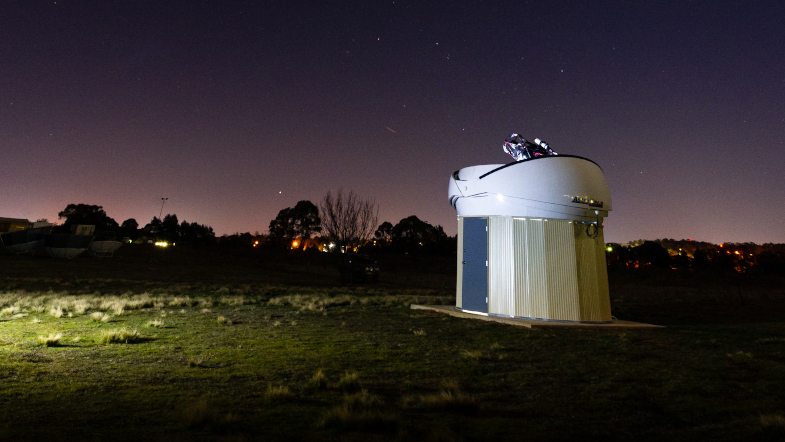UNSW Canberra researchers look to the stars
While some astronomers cringe when their occupation is mistaken for that of fortune-telling astrologers, UNSW Canberra astrophysicist Fiona Panther doesn’t mind.
While some astronomers cringe when their occupation is mistaken for that of fortune-telling astrologers, UNSW Canberra astrophysicist Fiona Panther doesn’t mind.

While some astronomers cringe when their occupation is mistaken for that of fortune-telling astrologers, UNSW Canberra astrophysicist Fiona Panther doesn’t mind.
“While astrology is not science, it is a lot to fun to think that maybe everything that’s out there has a bit of an influence on our day-to-day lives,” Dr Panther said.
“The cool thing astronomy is that we are studying how everything out there does actually have an influence on our lives here on Earth.”
Unlike astrology, astronomy won’t tell you if a prosperous 2020 is on the cards, instead it provides valuable insights into how chemical elements are created.
“Everything which makes up life and technology and everything we experience here on earth, those elements – those atoms – were formed inside of stars,” Dr Panther said.
Dr Panther is particularly interested in supernovae – large explosions that take place at the end of a star’s life cycle.
“I really enjoy studying dying stars and supernovae pretty much for one simple reason: I really, really like big explosions and these are the biggest explosions that you can get anywhere in the universe,” Dr Panther said.
“One dying star can – for a few days – outshine an entire galaxy. That’s how incredibly bright and powerful they are.”
As a student interested in various aspects of science, Dr Panther said she pursued astronomy because it covers a number of different areas.
“I really liked working with computers and writing computer programs and I was very interested in different aspects of physics,” Dr Panther said.
“Astronomy was a way to tie them all together. It’s really cool to look out and think there’s so much more out there than what we can perceive on Earth.”
Dr Panther is one of many UNSW Canberra researchers who has found her passion in space, and she says there is a lot they can learn from each other.
“UNSW Canberra is an amazing place to study astronomy because we have really incredible researchers who are world renowned in their fields,” Dr Panther said.
“There’s also an amazing opportunity to collaborate with the engineering side with UNSW Canberra Space. These are two groups which are quite different, although we’re still studying the same thing. We’re all interested in what happens beyond Earth.”
Whether you’re drawn to the physics of faraway galaxies, or how satellites can be used to improve communications on Earth, Dr Panther advises all aspiring scientists to stay curious.
“The main thing which drives all of science is asking questions, and it’s not necessarily about having all the answers,” Dr Panther said.
“The main thing we learn is how to formulate a good question. How do we ask the right questions, and how do we pique the curiosity of everyone around us so that we can come together to work on a problem?
“You don’t have to be perfect at maths or physics, but if you’re curious, that’s going to take you a really long way.”
If you have any questions about astronomy or space engineering, UNSW Canberra experts will be on hand available to discuss their research at A Night With The Stars, a free event celebrating all things space, on 27 November.